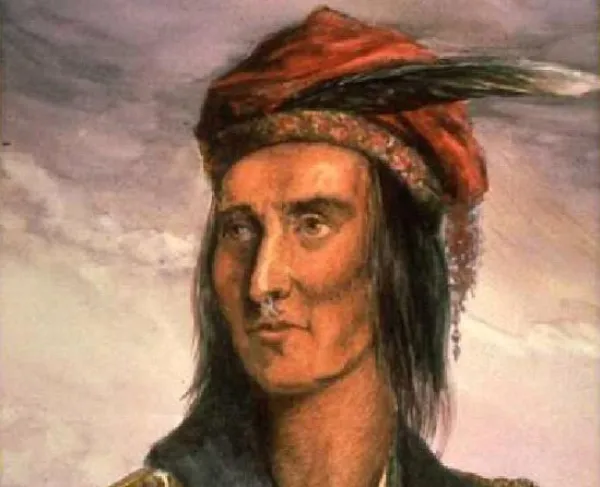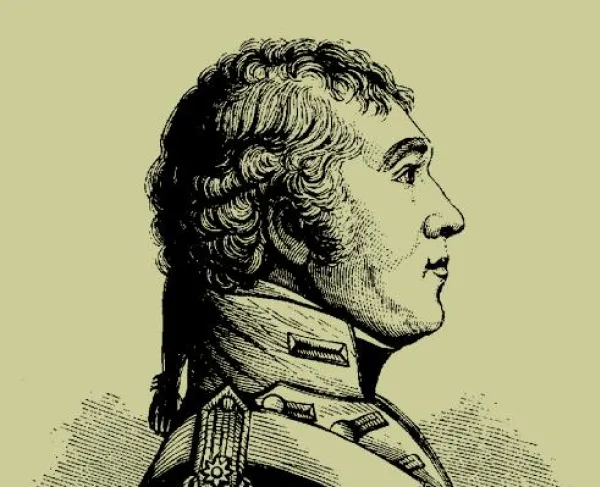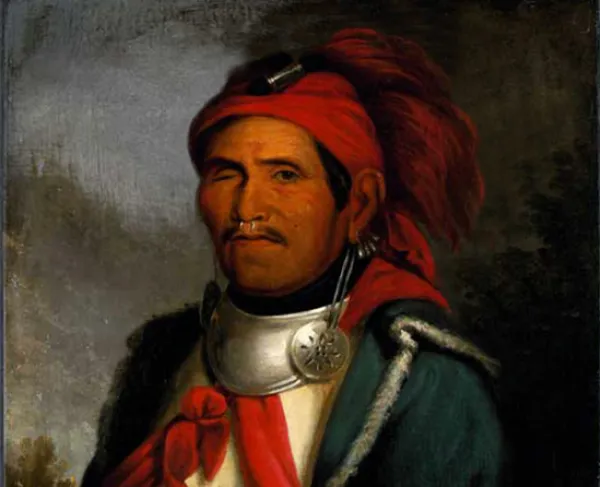William Henry Harrison

Often portrayed as a rough-and-tumble outdoorsman, William Henry Harrison was born at the luxurious Berkeley Plantation in Virginia in 1773. He was the youngest of Elizabeth and Benjamin Harrison’s seven children. During William’s boyhood, his father signed the Declaration of Independence and was governor of Virginia. William studied classics at Hampden-Sydney College and medicine at the University of Pennsylvania until his father’s death in 1791.
With the help of family friend “Light-Horse” Harry Lee, Harrison secured a commission in the First American Regiment and relocated to present-day Ohio. He served as an aide-de-camp to General Anthony Wayne at the 1794 Battle of Fallen Timbers, where “Mad Anthony” commended Harrison “conduct and bravery exciting the troops to press for victory.” The following year he was a signatory on the Treaty of Greenville, which ended the Northwest Indian War and opened the area for settlement by whites.
That same year, 1795, Harrison met Anna Tuthill Symmes, the daughter of John Cleves Symmes. Knowing Anna’s father did not approve of the match, the couple eloped and married on November 25, 1795. It was an advantageous marriage for Harrison; Symmes was a well-connected judge and a veteran of the Revolutionary War. Judge Symmes eventually sold the couple a plot of land in North Bend, Ohio, which became the Harrison’s home.
Harrison resigned from the army at age 25 and embarked on a political career that centered around expanding white settlement in the Northwest Territory. After a brief stint as secretary for the territory, he became its first delegate to the United States Congress at age 26. He was instrumental in establishing Indiana Territory and became its first governor in 1801. Over the next 11 years, he negotiated treaties with Native American tribal leaders, acquiring millions of acres by force or encroachment. Harrison expanded Indiana’s white settler population and put the territory on the path to statehood.
Tensions with Native Americans boiled over in 1810. Members of the Shawnee Tribe, led by Tecumseh and his brother Tenskwatawa, demanded Harrison nullify the Treaty of Fort Wayne and threatened reprisals on those who attempted to settle what they considered to be disputed territory. Fearing the situation would threaten Indiana statehood, Harrison assumed command of a mixed force of militia and U.S. Regular troops and led them toward Tenskwatawa’s encampment along the Tippecanoe River. He had hoped this show of force would intimidate Native American leaders into negotiating. Instead, it prompted them to attack, resulting in the Battle of Tippecanoe. Though Harrison suffered heavy losses, the withdrawal of Tenskwatawa’s forces allowed him to claim a decisive victory which would follow him for the rest of his career.
Victory at Tippecanoe cemented Harrison’s status as a leader on the frontier. When war with Great Britain came in 1812, he was commissioned brigadier general and tapped to command the Army of the Northwest. He led it at the Battle of the Thames, which was a major U.S. victory over a force composed of British and Native Americans under Tecumseh, who was killed in the battle. Resigning from the army in 1814, Harrison again played a critical role in negotiating treaties with tribal leaders. Congress later awarded him a gold medal for his wartime contributions.
Harrison returned to congress in the decade after the War of 1812, first as a member of the House of Representatives from 1816 to 1819, then as a Senator from 1825 to 1828. In 1840, Harrison began his second attempt at a presidential campaign as a Whig poised to defeat the incumbent Martin Van Buren. Although born from Virginia aristocracy, the Whigs painted Harrison as a rugged frontiersman and Indian fighter—the image of a log cabin became synonymous with his presidential campaign. This was juxtaposed with President Martin Van Buren, who was chastised as eccentric and out of touch with the common man. Harrison won the election of 1840, gathering much of his support from southern and western states.
The day of Harrison’s inauguration—March 4, 1841—was wet and cold. The president-elect, however, opted to forego an overcoat or top hat. His inaugural address totaled 8,445 words and took nearly two hours to deliver. Three weeks later—after another extended outing in the rain—he developed pneumonia and, later, severe diarrhea. He died April 4, after just 31 days in office. Though historians long attributed his death to pneumonia, recent scholarship suggests that the White House’s drinking water was contaminated by public sewage and that Harrison likely died from septic shock. Regardless of the cause, his death made Harrison’s presidential term the shortest in American history. His grandson, Benjamin, went on to become the 23rd President of the United States.
Related Battles
189
120
84
665





